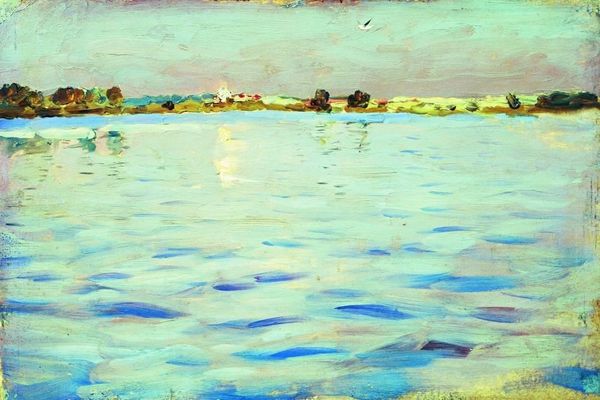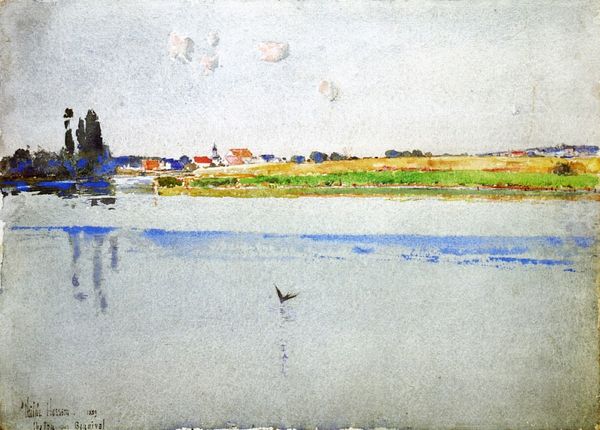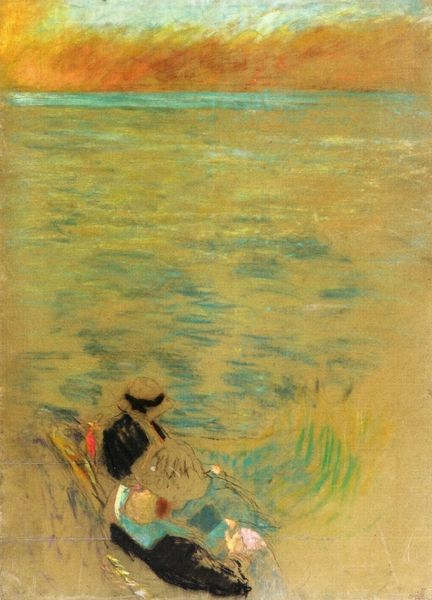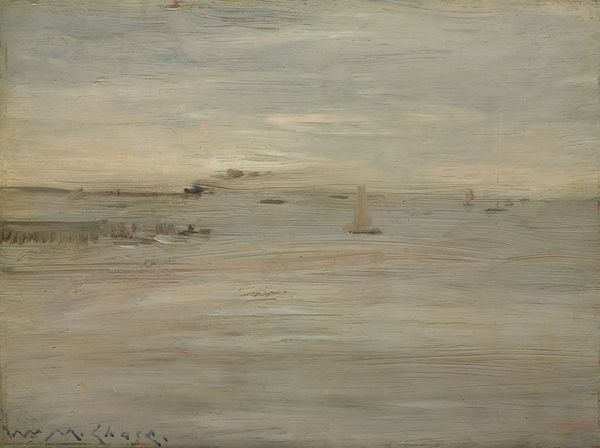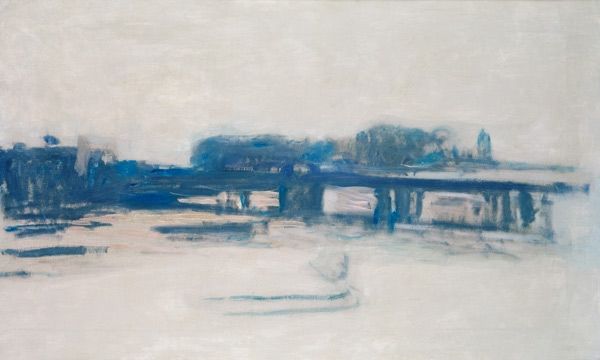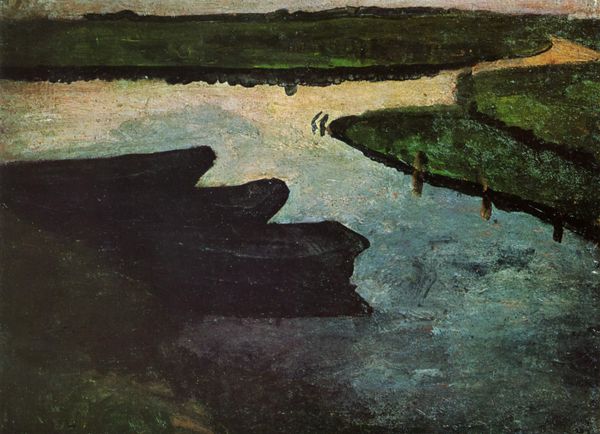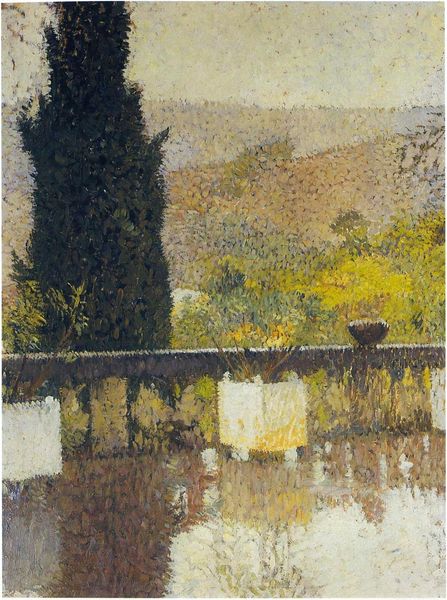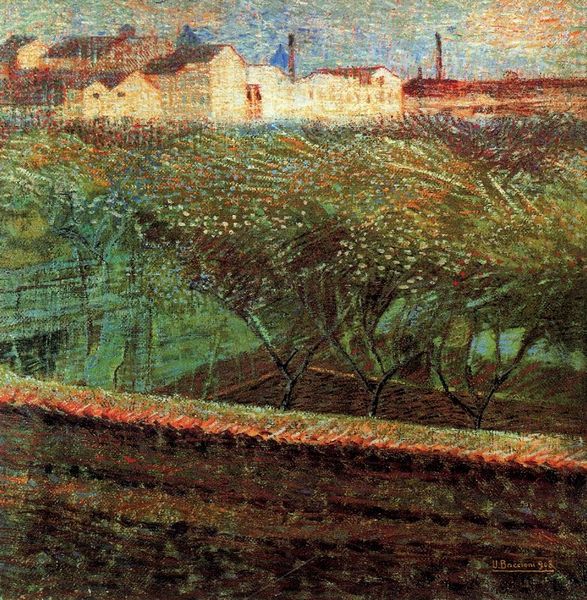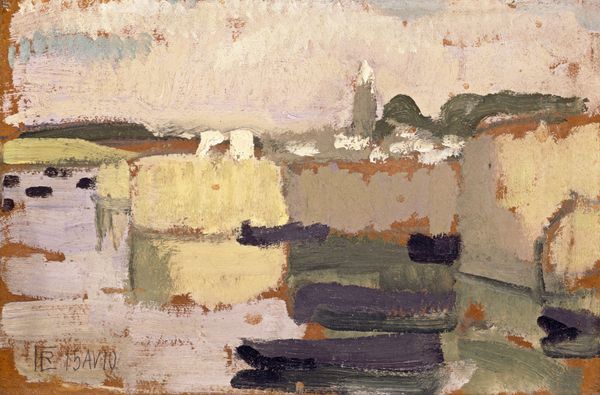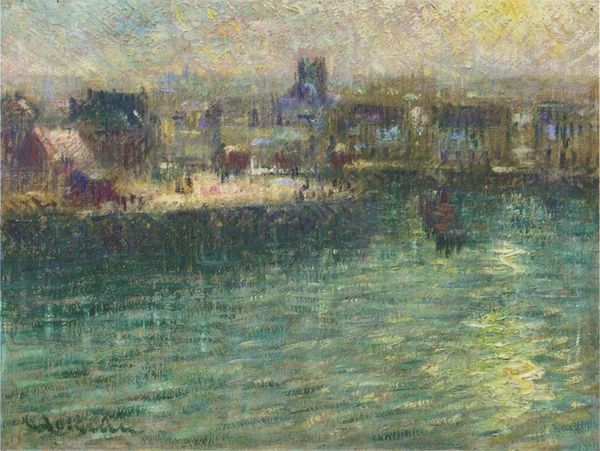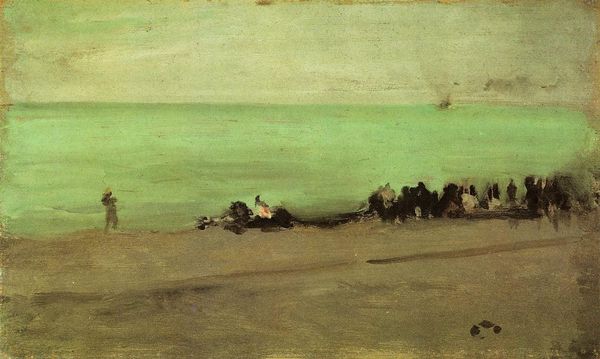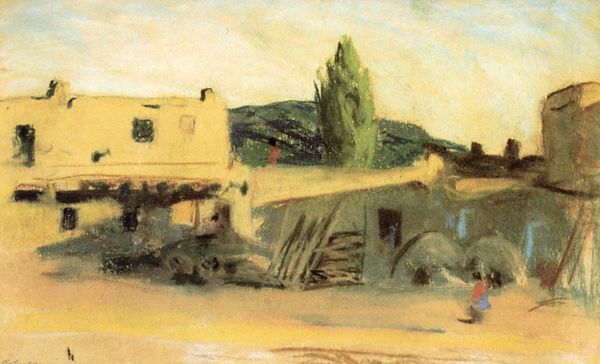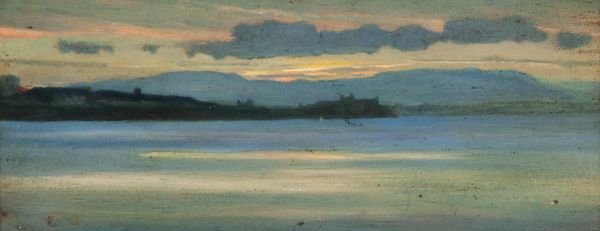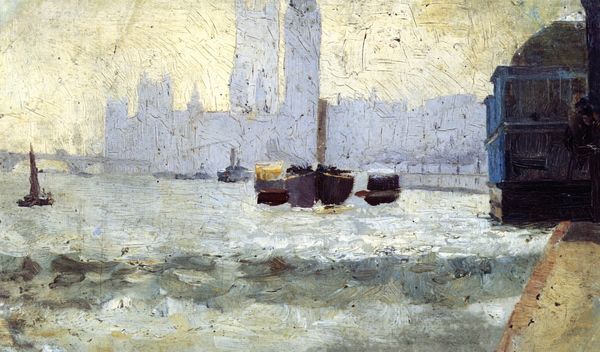
Copyright: Public domain
Editor: This is Robert Henri's "Early Morning, Venice" from 1891. It's a watercolor piece, and the overall effect is incredibly tranquil, almost hazy. I'm curious about the choice of such a fluid medium for capturing an urban scene. What do you see in this piece beyond the obvious stylistic elements? Curator: I'm drawn to the labor involved in capturing this 'en plein air.' Consider Henri, positioned perhaps precariously with his materials, engaging directly with the Venetian landscape. The watercolor, usually associated with preparatory sketches or leisure art, becomes here the very substance of the finished work. What implications does this have for the perception of the work’s "value?" Editor: That's a really interesting perspective. It challenges the traditional hierarchy placing oil paintings above watercolors in terms of artistic merit and market value. How do you see that reflected in the image itself? Curator: Precisely. Look at the fluidity and translucency of the washes. It allows him to quickly capture the transient effects of light on the water. The medium itself facilitated a certain speed and immediacy. I think Henri is also hinting at Venice’s economic reliance on trade and sailing; each brushstroke signifies the commerce and materials of its existence. It becomes a materialist study of both art-making and place-making. Editor: So, you're saying the choice of watercolor becomes part of the commentary on Venice itself, not just a stylistic decision? Curator: Absolutely. Watercolor democratizes the art-making process. This was likely a conscious choice, rejecting the perceived stuffiness of academic painting. We can analyze his motivations beyond pure aesthetic beauty, we must think about production. Editor: I hadn’t considered that before. Viewing it as an intentional statement through materials rather than just subject. It gives me a lot to think about, it challenges how value is attributed both economically and culturally to material and form. Curator: Precisely, art becomes evidence.
Comments
No comments
Be the first to comment and join the conversation on the ultimate creative platform.
